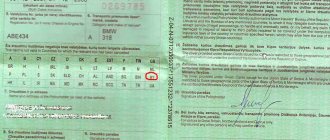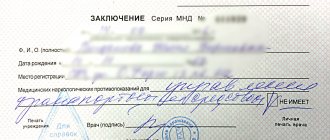What is temporary import of goods?
The customs procedure for importing foreign goods into Russia for a limited permitted period is called temporary import of goods (admission). The advantages of this regime include significant savings in the cost of taxes and duties, which are either absent or the amount of which is lower compared to other regimes. An important condition is the export of such goods in full from the territory of Russia after the expiration of the permitted period. Typically, this provision of the Customs Code applies to exhibition exhibits, structures for organizing fairs, sports equipment, equipment that is used to organize competitions, concerts, etc. Also, the regime applies to foreign cargo that moves across the border of the Russian Federation or is located on storage under customs control.
To confirm the possibility of applying the temporary admission procedure, identification of goods is carried out, which does not take into account containers and packaging. It is important that throughout the entire period of stay, the imported goods remain in their original condition (natural wear and tear is allowed) and at the disposal of the declarant. Such goods can be transferred to third parties only after obtaining the appropriate permission.
Attention! If the goods are not exported within the specified period, then the procedure for release for domestic consumption is applied, which results in the payment of taxes and duties from which it was exempted and a late payment penalty.
Temporary import - international regulation
Established norms inherent in international treaties play a key role in matters of legal administration and regulation of the established customs regime. Additionally, the requirements of agreements are taken into account, on the basis of which all operations regarding the movement of goods within the country and abroad are carried out.
The main objective of international norms is to ensure the correct conduct of activities for the conduct of trade and economic relations. Temporary importation is partially or fully covered by established requirements that allow the movement of goods of a promotional nature, widely applicable at exhibitions and other public events.
The presence of established norms regulating international activities made it possible to use existing laws in relation to customs regimes, which significantly simplified the procedure for moving cargo, increased communication between contacts, and also had a positive impact on the conduct of trade relations.
International activities are conducted under the patronage of the Customs Cooperation Council and are regulated by the following conventions:
- An international agreement on customs procedures, the main objective of which is to simplify the process of moving goods and quickly adapt
- Brussels Convention, using A.T.A. carnets instead of standard customs declarations
- Istanbul Convention aimed at regulating the import of products on a temporary basis
The Brussels Convention has received the greatest distribution and recognition. According to the established rules, the declarant can use the A.T.A. carnet along with the standard customs declaration. This is an international document that acts as a declaration. The main objective of the carnet is to simplify the process of registering cargo, as well as its duty-free crossing of the border checkpoint.
The Istanbul Convention is also widely used, according to the terms of which a customs declaration is easily replaced by a document on the import of products on a temporary basis.
Important! The conventions apply to certain categories of goods.
Features of temporary import
The temporary import procedure is completed based on the identification of the goods being transported. The declarant collects and submits to the customs authorities documents detailing the reasons for temporary admission, and documents guaranteeing subsequent re-export. Customs payments are being calculated.
During the use of temporarily imported goods, wear or natural loss is allowed, which cannot be avoided. It is mandatory to comply with proper storage and operating conditions for such goods that can be tested, inspected, tested, take part in experiments, be repaired (functional improvements in design compared to the original are prohibited), and receive technical maintenance. They must always be in the ownership and disposal of the declarant, who can transfer temporarily imported goods to another person in a number of cases defined by law, without notifying the TO, for example, to carry out repair work or maintenance. The transfer of such goods to other persons, not provided for by legislative acts, must be accompanied by a maintenance permit, which is issued on the basis of a written application by the declarant describing the reason for such need and providing information about the owner or user. At the same time, the declarant must comply with the law regarding conditions and terms and comply with all provisions.
Important! The temporary import procedure can only be applied to foreign goods.
Terms and cost of temporary importation (admission)
With us, the time it takes to clear goods at customs is a few hours!
At the same time, the price or cost of customs clearance services for goods under the temporary import procedure in our company is the minimum in the market and depends on the place of customs clearance and the tasks set by the foreign trade participant, on average it can be:
- Individual – 3000 – 15000 rub.
- Legal entity or individual entrepreneur - 5,000 - 15,000 rubles.
We are confident that we will make you the best offer!
What goods are eligible for temporary admission?
The following goods of foreign origin imported into the territory of the Russian Federation are placed under the customs procedure of temporary import:
- demonstration structures, professional tools, installation equipment to ensure participation in exhibitions, fairs, conferences, competitions;
- musical instruments and theatrical props for concerts and performances;
- mobile gadgets, computers and devices used for business activities;
- equipment necessary for the operation of the media, subject to permission;
- vehicles intended for the above purposes;
- packaging, containers, containers.
Eurasian Economic Commission
Article 277. Contents of the customs procedure for temporary import (admission)Temporary import (admission) is a customs procedure in which foreign goods are used for a specified period in the customs territory of the Customs Union with conditional exemption, full or partial, from payment of import customs duties, taxes and without the use of non-tariff regulation measures, with subsequent placement under the customs procedure re-export.
Article 278. Conditions for placing goods under the customs procedure of temporary import (admission)
1. Placement of goods under the customs procedure of temporary import (admission) is permitted provided that it is possible to identify the goods placed under this customs procedure during their subsequent customs declaration in order to complete the customs procedure of temporary import (admission).
Identification of goods is not required in cases where, in accordance with international treaties of the member states of the customs union, replacement of temporarily imported goods is allowed.
2. Placement under the customs procedure of temporary import (admission) is not allowed:
1) food products, drinks, including alcohol, tobacco and tobacco products, raw materials and semi-finished products, consumables and samples, with the exception of cases of their import in single copies for advertising and (or) demonstration purposes or as exhibition exhibits or industrial designs;
2) waste, including industrial waste;
3) goods prohibited for import into the customs territory of the customs union.
3. Foreign goods previously placed under other customs procedures may be placed under the customs procedure of temporary import (admission), subject to the requirements and conditions provided for by this Code.
Article 279. Restrictions on the use and disposal of temporarily imported goods
1. Goods placed under the customs procedure of temporary import (admission) (hereinafter referred to as temporarily imported goods) must remain unchanged, except for changes due to natural wear and tear or natural loss under normal conditions of transportation (shipment), storage and (or) use ( operation).
It is allowed to carry out operations with temporarily imported goods necessary to ensure their safety, including repair operations (except for major repairs and modernization), maintenance and other operations necessary to maintain the goods in normal condition, provided that the goods are identified by the customs authority when they are re-exported .
It is allowed to carry out tests, research, testing, inspection, experiments or experiments with temporarily imported goods or to use them in the course of tests, research, testing, inspection, experiments or experiments.
2. Temporarily imported goods must be in the actual possession and use of the declarant.
3. The declarant may transfer temporarily imported goods into the possession and use of another person:
1) for the purpose of their maintenance, repair (except for major repairs and (or) modernization), storage, transportation, as well as for other purposes in cases determined by legislation and (or) international treaties of the member states of the customs union - without permission customs authority;
2) in other cases - with the permission of the customs authority.
4. In order to obtain permission from the customs authority to transfer temporarily imported goods into the possession and use of other persons, the declarant of these goods submits to the customs authority where they were placed under the customs procedure a written application indicating the reason for the transfer of temporarily imported goods to another person and information about this person.
The transfer of temporarily imported goods into the possession and use of other persons does not relieve the declarant of the customs procedure for temporary import (admission) from compliance with the requirements and conditions established by this chapter, and also does not suspend or extend the period of temporary import.
5. It is allowed to use temporarily imported goods that are vehicles outside the customs territory of the Customs Union as vehicles for international transportation in the manner established by Chapter 48 of this Code.
Article 280. Period of temporary import of goods
1. The period for temporary import of goods is established by the customs authority on the basis of the declaration of the declarant based on the purposes and circumstances of such import and cannot exceed 2 (two) years from the date of placing the goods under the customs procedure of temporary import, except for the cases provided for in this article.
At the written request of the declarant, the period for temporary import of goods may be extended by the customs authority within the period specified in part one of this paragraph, or the period determined in accordance with paragraph 2 of this article.
2. For certain categories of goods, depending on the purpose of their import into the customs territory of the Customs Union, the Commission of the Customs Union may establish shorter or longer periods of temporary import than the period specified in part one of paragraph 1 of this article.
3. When goods are repeatedly placed under the customs procedure of temporary import (admission), including when the declarants of this customs procedure are different persons, the total period of temporary import cannot exceed the period specified in part one of paragraph 1 of this article, or the period specified in in accordance with paragraph 2 of this article.
Article 281. Completion and suspension of the customs procedure for temporary import (admission)
1. The customs procedure for temporary import (admission) ends before the expiration of the temporary import period by placing temporarily imported goods under the customs procedure for re-export in the manner and on the conditions provided for by this Code.
The customs procedure for temporary import (admission) may be completed before the expiration of the temporary import period by placing temporarily imported goods under another customs procedure, with the exception of the customs procedure for customs transit, in the manner and on the conditions provided for by this Code.
2. Before the expiration of the temporary import period, the customs procedure for temporary import (admission) may be suspended if temporarily imported goods are placed under the customs procedure of a customs warehouse or another customs procedure determined by a decision of the Customs Union Commission. The procedure for suspending and renewing the customs procedure for temporary import (admission) is determined by a decision of the Customs Union Commission.
3. Temporarily imported goods may be placed under the customs procedure of re-export or under another customs procedure in one or more batches.
Article 282. Full conditional and partial conditional exemption from customs duties and taxes
1. The list of goods temporarily imported with full conditional exemption from customs duties and taxes, as well as the conditions for such exemption, including its deadlines, are determined in accordance with international treaties of the member states of the customs union and (or) decisions of the Customs Union Commission.
2. Temporarily imported goods with full conditional exemption from customs duties and taxes are used within the territory of a member state of the customs union, whose customs authority placed these goods under the customs procedure of temporary import (admission), unless otherwise established by a decision of the Customs Union Commission.
3. In respect of goods for which full conditional exemption from payment of import customs duties and taxes is not provided, as well as in case of non-compliance with the conditions for full conditional exemption from payment of import customs duties and taxes established in accordance with paragraph 1 of this article, partial conditional exemption is applied from paying import customs duties and taxes.
With partial conditional exemption from payment of import customs duties and taxes, for each full and incomplete calendar month of the presence of goods in the customs territory of the Customs Union, 3 (three) percent of the amount of import customs duties and taxes that would have been payable if the goods had been placed under customs control shall be paid. the procedure for release for domestic consumption on the day of registration of the customs declaration submitted to place such goods under the customs procedure of temporary import (admission).
4. In case of partial conditional exemption from payment of import customs duties and taxes, the amount of import customs duties and taxes is paid when goods are placed under the customs procedure of temporary import (admission) for the entire established period of validity of this customs procedure or periodically at the choice of the declarant, but not less than once every 3 (three) months. The frequency of payment of import customs duties and taxes is determined by the declarant with the consent of the customs authority.
5. The total amount of import customs duties and taxes levied during temporary import with partial conditional exemption from payment of import customs duties and taxes must not exceed the amount of import customs duties and taxes that would have been payable if the goods had been placed under the customs release procedure for domestic consumption on the day of registration of the customs declaration submitted to place such goods under the customs procedure of temporary import (admission), without taking into account benefits for the payment of import customs duties and taxes.
6. Upon completion of the customs procedure for temporary import (admission) in accordance with paragraph 1 of Article 281 of this Code, the amounts of import customs duties and taxes paid under partial conditional exemption from payment of import customs duties and taxes are not subject to refund (offset).
Article 283. The emergence and termination of the obligation to pay import customs duties, taxes and the deadline for their payment in relation to goods placed (placed) under the customs procedure of temporary import (admission)
1. The obligation to pay import customs duties and taxes in relation to goods placed under the customs procedure of temporary import (admission) arises for the declarant from the moment of registration of the customs declaration by the customs authority.
2. The obligation to pay import customs duties and taxes in relation to goods placed (placed) under the customs procedure of temporary import (admission) is terminated for the declarant:
1) upon completion of the customs procedure for temporary import (admission) in accordance with paragraph 1 of Article 281 of this Code, except for the case when during the operation of this procedure the deadline for payment of import customs duties and taxes has come;
2) in cases established by paragraph 2 of Article 80 of this Code.
3. Import customs duties and taxes with partial conditional exemption from payment of import customs duties and taxes are subject to payment within the following terms:
1) before the release of goods in accordance with the customs procedure for temporary import (admission) upon payment of the entire amount of import customs duties and taxes payable for the established period of temporary import, or payment of the first part of the amount of import customs duties and taxes payable, in case of frequency such payment;
2) before the beginning of the period for which import customs duties and taxes are paid, if such payment is periodic;
3) in relation to goods placed under the customs procedure of temporary import (admission) using benefits for the payment of import customs duties and taxes associated with restrictions on the use and (or) disposal of these goods:
in case of refusal to use such benefits - before making changes to the customs declaration, according to which the goods are placed under the customs procedure of temporary import (admission), in terms of refusal to use the benefits;
in case of performing actions with goods in violation of restrictions on the use and (or) disposal of these goods established in connection with the use of such benefits - on the first day of performing these actions, and if this day is not established - on the day of registration of the customs declaration by the customs authority , according to which goods are placed under the customs procedure of temporary importation (admission);
4) in case of violation of the conditions under which goods were placed under the customs procedure of temporary import (admission) with full conditional exemption from payment of import customs duties and taxes - on the day of registration by the customs authority of the customs declaration, in accordance with which the goods were placed under the customs procedure of temporary import (admission).
4. The deadline for payment of import customs duties and taxes in respect of goods placed under the customs procedure of temporary import with full conditional or partial conditional exemption from payment of import customs duties and taxes is considered to be:
1) when transferring temporarily imported goods to other persons without the permission of the customs authorities - the day of transfer, and if this day is not established - the day of registration by the customs authority of the customs declaration submitted to place the goods under the customs procedure of temporary import
(admission);
2) in case of loss of temporarily imported goods during the period of temporary import of goods established by the customs authority, with the exception of destruction (irretrievable loss) due to an accident or force majeure or natural loss under normal conditions of transportation (shipment) and storage, - the day of loss of goods, and if this day is not established - the day of registration by the customs authority of the customs declaration submitted to place goods under the customs procedure of temporary import (admission);
3) if the customs procedure for temporary import (admission) has not been completed in accordance with paragraph 1 of Article 281 of this Code - the day of expiration of the temporary import of goods.
5. Import customs duties and taxes in the cases established by paragraph 4 of this article are subject to payment in amounts corresponding to the amounts of import customs duties and taxes that would be payable when placing such goods under the customs procedure of release for domestic consumption, without taking into account tariff preferences and benefits for the payment of customs duties and taxes calculated on the day of registration by the customs authority of the customs declaration, in accordance with which the goods are placed under the customs procedure of temporary import (admission), minus the amounts of customs duties and taxes paid with partial exemption from customs duties and taxes .
Article 284. Features of placing temporarily imported goods under the customs procedure of release for domestic consumption
1. When placing temporarily imported goods under the customs procedure of release for domestic consumption, the rates of import customs duties, taxes and exchange rates established in accordance with the legislation of a member state of the customs union are determined on the day of registration by the customs authority of the customs declaration submitted for placing goods under the customs temporary import procedure (admission).
2. When placed under the customs procedure of release for internal consumption after the customs procedure of temporary import (admission) of goods in respect of which the declarant of the customs procedure of release for internal consumption in the customs procedure of temporary import (admission) paid customs duties and taxes, with partial conditional exemption from payment of customs duties, taxes, import customs duties, taxes are paid in the amount of the difference in the calculated amounts of customs duties, taxes payable when placing the release for domestic consumption under the customs procedure, and customs duties, taxes paid in accordance with the customs procedure of temporary import (admission ).
The provisions of part one of this paragraph also apply if, before placing the goods specified in part one of this paragraph under the customs procedure of release for domestic consumption, these goods were placed under the customs procedure (procedures) of a customs warehouse, temporary import (admission) or placed in temporary storage.
3. When placing under the customs procedure of release for domestic consumption of goods in respect of which a full conditional or partial conditional exemption from customs duties and taxes was applied, for the period when such exemption was applied, interest on the amounts of customs duties and taxes that were subject to would have been paid if a deferment (installment plan) had been granted in respect of these amounts from the date of application of the full conditional or partial conditional exemption from customs duties and taxes, calculated in the manner established by the legislation of the member states of the customs union.
For certain categories of temporarily imported goods, the Customs Union Commission has the right to determine cases when the interest specified in part one of this paragraph is not paid.
What documents are needed for temporary import?
The composition of the package of documents for submission to the TO is determined by order of the Federal Customs Service of Russia dated April 25, 2007 No. 536 and includes:
- documentary evidence of the purposes of admission;
- description of the use of temporarily imported goods with a plan of activities, such as scientific tests, fairs, etc.;
- document identifying the goods;
- a certificate of temporary admission of the non-taxable type with reference to a regulatory act allowing the abolition of taxation;
- documentary guarantees of re-export of goods within the established time limits;
- a statement indicating the time of return removal.
If the cargo was or is under other customs procedures before this regime, the declarant must confirm that all applicable requirements are met without violations. The customs broker may require additional documents.
Required documents
In accordance with the order of the Federal Customs Service of Russia dated April 25, 2007 No. 536, in addition to the declaration, the following documents and information are additionally submitted under the temporary import regime:
- documents for the purpose of temporary import of goods;
- information about the identification characteristics of goods;
- documents and information justifying the application of a full conditional exemption from duties and taxes;
- an obligation to re-export temporarily imported goods, drawn up in any written form, including documents confirming the availability of security for payment of payments;
- plans and programs for carrying out activities using goods placed under the temporary import regime;
- statement on the expected timing of temporary import of goods;
- documents indicating compliance with the requirements of the previously declared customs regime.
Terms of temporary import of goods
The general conditions are that the maximum period of stay of temporarily imported goods in the Russian Federation is two years. The period of storage in a customs warehouse may be excluded from the calculation.
The period for temporary import of goods is determined by the Russian Customs Service, taking into account the declared purposes for which the goods are imported into the territory of the Russian Federation. In general cases, the countdown begins from the day the regime opens. An extension period is provided for various categories of goods and depending on the purpose of their import into the territory of the EAEU. This provision does not apply to containers, but is valid for fixed production assets, provided that they are the property of the declarant. Thus, equipment can be under the temporary import procedure for 34 months. The Russian Customs Code describes the procedure for extending the deadline. If the temporary import regime was issued by different declarants, the permitted period still does not exceed two years. The TO has the right to set a shorter period based on current legislation and the characteristics of the cargo.
Assistance from a customs broker when processing temporary importation
A customs broker provides assistance in processing the temporary import of any cargo. Professionals resolve issues of any complexity, which is a guarantee of saving both time and finances.
The assistance of a customs broker in obtaining temporary import includes:
- preparation of documents
- passing accreditation at the border control point
- consulting services
- drafting and legal support of contracts
- re-export
- preparing cargo for inspection
- certification, etc.
Comprehensive assistance for temporary importation is determined on an individual basis, after analyzing the specific situation. You can submit a request to find a specialist using a special contact form on our website.
Documents for temporary import
A complete package of documents for the temporary import of consignments into the Russian Federation must be provided to obtain official permission from the Federal Customs Service. A request can be made either by the owner of the cargo or by his authorized representative “customs broker”. The application contains detailed information regarding the purpose of temporary import, a full description of the consignment and information about the owner.
The mandatory list of documents for temporary import includes:
- official data confirming the purpose of import
- basic product properties, including quantitative and qualitative characteristics
- temporary import certificate, with reference to official law
- document-obligation on re-export of cargo after completion of the period of stay
- program of events according to which the cargo remains on the territory of the state (exhibitions, tests, etc.)
- certificate of completion of other customs regimes
- additional information
A complete list of documents for temporary import is available in the current Customs Code. Detailed information can be obtained from our specialists through the feedback form on our website.
Duration of stay of temporary import
The period of stay of cargo on the territory of the Russian Federation under the temporary import regime is established by the revenue and duties authority. It is noteworthy that the period is determined individually. The maximum stay is 3 years.
In the case of importing transport, the period of stay is no more than a year. The period is also determined on an individual basis. The revenue and duties authority is responsible for this issue.
Important! Depending on the purpose of temporary import, the period of stay on the territory of the state may be increased upon the written request of the owner or authorized representative. In case of refusal, the response comes immediately, indicating the main reason. "RTB" Russian Customs Broker
If it is impossible to timely re-export from the territory of the state, the vehicle is seized or seized due to violation of customs rules.
Procedure for payment of customs duties and taxes during temporary import
The temporary import regime provides for complete or partial exemption from taxes and duties. Among the goods that are not subject to tax:
- cargo related to science, culture, film industry, tourism, imported for the purpose of improving international relations;
- international aid goods, etc.
The final decision on full tax exemption rests with the federal government. If the conditions of the procedure with exemption from mandatory payments in relation to declared temporarily imported goods are violated, or new goods are imported that are not specified in the declaration, then the full amount of tax payments is charged.
Under a regime with partial payment of taxes and duties, obligations to pay arise after the opening of the regime and end when it ends. The payment date is determined by the date of registration of the customs declaration or, if the goods were released before registration, by the date of registration of the application for the release of goods.
The payment deadline is considered the day of expiration of the temporary import of goods or depends on the circumstances, for example, if the temporarily imported goods were transferred to other persons, then the payment deadline is the day of their transfer or the day of registration of the declaration at the customs office. If temporarily imported goods are lost during the regime, the payment deadline is the day the goods were lost and the day the customs declaration was registered by the customs authority, if the day of loss is not determined. The exception is complete destruction as a result of objective reasons.
The amount of customs duties and taxes is 3% of the same duties and taxes that would be charged on the same goods when imported for domestic use. The amount can be paid immediately in its entirety or in installments periodically, but not less than one payment per three months. Periodic payment is discussed between the declarant and the authorized representative of the customs service. Paid taxes and customs duties cannot be returned or compensated as a result of offset of payments.
Important! It is legally determined that customs has the right to demand payment of customs duties if its employees have doubts regarding the fulfillment of obligations on the part of the declarant.
Temporary importation - completion of the process
Temporary import has fixed restrictions, but sometimes, under the influence of certain factors, the regime ends earlier than agreed. This is only permissible if the product is simultaneously exposed to several modes.
The process of re-exporting goods that were moved into the country on temporary terms is called re-export. To carry out the operation, the declarant is required to provide a declaration with the established regime.
At the end of the established period, the cargo can be freely used, but only in this case the payment of mandatory duties and fees is required (if it has not been made before). For the entire period of stay in the territory of the state, interest is calculated.
Temporary import is a specific procedure that requires an understanding of the current tax and customs legislation. The DMlogist company provides comprehensive support in matters of registering goods and placing them under a certain regime. For details and activation of the service package, please contact the indicated phone numbers or leave a request on the website.
You can fill out an online application to calculate the cost of temporary import services here
How does the temporary importation of goods expire?
If we talk about the general case, the procedure ends two years after the introduction of the regime, which can be suspended for the period of storage of goods in a customs warehouse. The closure of the procedure occurs after the goods are placed under the customs procedure of re-export, under another customs procedure, if the period has not been extended. Also, early termination of the regime may occur as a result of violation of the conditions of temporary import, for example, modernization of goods.
The procedure for suspension and renewal is determined by a special FCS Commission.
Chapter 26. Customs procedure for temporary import (admission)
Article 166. Content and application of the customs procedure for temporary import (admission), conditions for placing goods under the customs procedure and their use in accordance with such a procedure, validity period of the customs procedure, emergence and termination of the obligation to pay import customs duties, taxes, special, anti-dumping, countervailing duties, the deadline for their payment and calculation
1. Content and application of the customs procedure for temporary import (admission), conditions for placing goods under the customs procedure and their use in accordance with such a procedure, validity period of the customs procedure, emergence and termination of the obligation to pay import customs duties, taxes, special, anti-dumping, countervailing taxes duties, the deadline for their payment and calculation are regulated by Chapter 29 of the Code of the Union and this chapter. 2. An additional condition for placing goods under the customs procedure of temporary import (admission) is to ensure the fulfillment of the obligation to pay import customs duties, taxes, special, anti-dumping, countervailing duties in accordance with Chapter 10 of this Federal Law, except in cases where such security is not provided .
Article 167. Validity period of the customs procedure for temporary importation (admission). The procedure for extending the validity period of the customs procedure for temporary import (admission) established by the customs authority
1. The validity period of the customs procedure for temporary importation (admission) is established by the customs authority on the basis of the declaration of the declarant based on the purposes and circumstances of such importation within the period established by Article 221 of the Code of the Union. 2. The validity period of the customs procedure for temporary import (admission) may be extended within the period established by part 1 of this article, at the request of the declarant. 3. The application is submitted to the customs authority where the goods were placed under the customs procedure of temporary import (admission), in the form of an electronic document or a document on paper before the expiration of the validity period of the customs procedure of temporary import (admission) established by the customs authority or no later than one month after its expiration. 4. The customs authority considers an application to extend the validity period of the customs procedure for temporary import (admission) within five working days. The decision of the customs authority is sent to the declarant in the form of an electronic document or a paper document. 5. The customs authority has the right to refuse to extend the validity period of the customs procedure for temporary import (admission) in the event of: 1) non-compliance with the conditions for the use of goods in accordance with the customs procedure for temporary import (admission), established by paragraph 2 of Article 220 of the Code of the Union; 2) filing an application to extend the validity period of the customs procedure for temporary import (admission): a) to the customs authority where the goods were not placed under the customs procedure; b) after the expiration of the deadlines established by part 3 of this article; 3) failure to comply with the conditions for placing goods under the customs procedure of temporary import (admission), established by paragraph 1 of Article 220 of the Union Code and part 2 of Article 166 of this Federal Law. 6. The form, format and structure of the application for extending the validity period of the customs procedure for temporary import (admission), the decision of the customs authority based on the results of consideration of the said application are determined by the federal executive body exercising the functions of control and supervision in the field of customs affairs.
Article 168. Transfer by the declarant of goods placed under the customs procedure of temporary import (admission) into the possession and use of other persons with the permission of the customs authority
1. Permission from the customs authority to transfer goods placed under the customs procedure of temporary import (admission) (hereinafter in this chapter - temporarily imported goods) into the possession and use of other persons, provided for in paragraph 5 of Article 222 of the Code of the Union, is issued upon the application of the declarant. 2. The application is submitted to the customs authority where the temporarily imported goods were placed under the customs procedure, in the form of a paper document or an electronic document. 3. The application specified in part 2 of this article is accompanied by an obligation of the person to whom the goods are transferred to comply with the conditions for the use of goods in accordance with the customs procedure for temporary import (admission), the requirements and conditions of temporary import established by paragraph 2 of Article 220 of the Code of the Union, as well as a contract or other document on the basis of which the transfer of goods will be carried out. 4. The customs authority considers an application for the transfer of temporarily imported goods into the possession and use of other persons within five working days. The decision of the customs authority is sent to the declarant in the form of an electronic document or on paper. 5. The form, format and structure of the application for the transfer of temporarily imported goods, the obligations of the person to whom the goods are transferred, the decisions of the customs authority based on the results of consideration of the said application are determined by the federal executive body exercising the functions of control and supervision in the field of customs affairs. 6. The customs authority has the right to refuse to issue a permit for the transfer of temporarily imported goods for the possession and use of other persons in the event of: 1) non-compliance with the conditions for the use of goods in accordance with the customs procedure for temporary import (admission), established by paragraph 2 of Article 220 of the Code of the Union; 2) failure to comply with the conditions established by parts 7 and 8 of this article; 3) failure to comply with the requirements of the customs authority provided for in Part 9 of this article. 7. Transfer by the declarant of temporarily imported goods into the possession and use of other persons is permitted provided that these persons undertake obligations to further comply with the conditions for the use of goods in accordance with the customs procedure for temporary import (admission), the requirements and conditions for the temporary import of goods established by paragraph 2 Article 220 of the Code of the Union. 8. The declarant transferring temporarily imported goods must pay import customs duties and taxes for the period of application of partial payment of import customs duties and taxes. 9. When making a decision on the possibility of transferring temporarily imported goods to other persons, the customs authority has the right to require from persons to whom temporarily imported goods are transferred to ensure the fulfillment of the obligation to pay import customs duties, taxes, special, anti-dumping, countervailing duties in accordance with Chapter 10 of this Federal law, except in cases where such security is not provided, as well as execution of relevant documents in your name. 10. Persons to whom temporarily imported goods are transferred enjoy the rights and bear responsibilities for using the customs procedure for temporary import (admission), which are established by Chapter 29 of the Code of the Union and the legislation of the Russian Federation on customs, from the date the customs authority makes a decision on the transfer of temporarily imported goods .
Article 169. Completion, suspension and termination of the customs procedure for temporary import (admission)
1. Completion, suspension and termination of the customs procedure for temporary importation (admission) are carried out in accordance with Article 224 of the Union Code. 2. The customs procedure for temporary import (admission) may be completed before its expiration: 1) in the case of placement under the customs procedure of re-export or other procedure in accordance with the Union Code of parts or equipment removed during repair operations, maintenance or operations necessary to maintain goods in normal condition from aircraft or engines for them as a result of installation on such aircraft or engines for them of temporarily imported spare parts or equipment placed under the customs procedure of temporary import for the purpose of performing repair operations, maintenance or operations necessary to maintain goods in good condition; 2) in cases determined by the Government of the Russian Federation. 3. In the event of liquidation or termination of activity as a result of reorganization of a person who is a declarant of temporarily imported goods, the customs procedure for temporary import (admission) must be completed before the date the state registration body makes the corresponding entry in the federal executive body carrying out state registration of legal entities, individuals as individual entrepreneurs. 4. The responsibility for completing the customs procedure for temporary import (admission) in this case rests with the authorized representative of the liquidation commission. 5. Goods placed under the customs procedure of temporary import (admission), which has been terminated, not detained by customs authorities in accordance with Chapter 51 of the Union Code, are subject to temporary storage in accordance with Chapter 16 of the Union Code no later than the day following the day of termination actions of the customs procedure for temporary import (admission).
Why is temporary import needed?
The temporary import regime helps strengthen foreign economic relations and develop foreign trade, easing the tax burden for declarants who can take part in scientific conferences, hold concerts, and represent domestic industry at international exhibitions.
Everything about marking goods during import. Only with markings is it possible to go through customs clearance of cargo without delays
List of documents required for customs clearance In each case, to cross the border it is necessary to collect a package of documents for customs clearance
Rates for customs duties in 2021 in a convenient table For the convenience of site users, tables have been compiled to make the information easier to perceive. In 2021, previously approved rates continue to apply.










